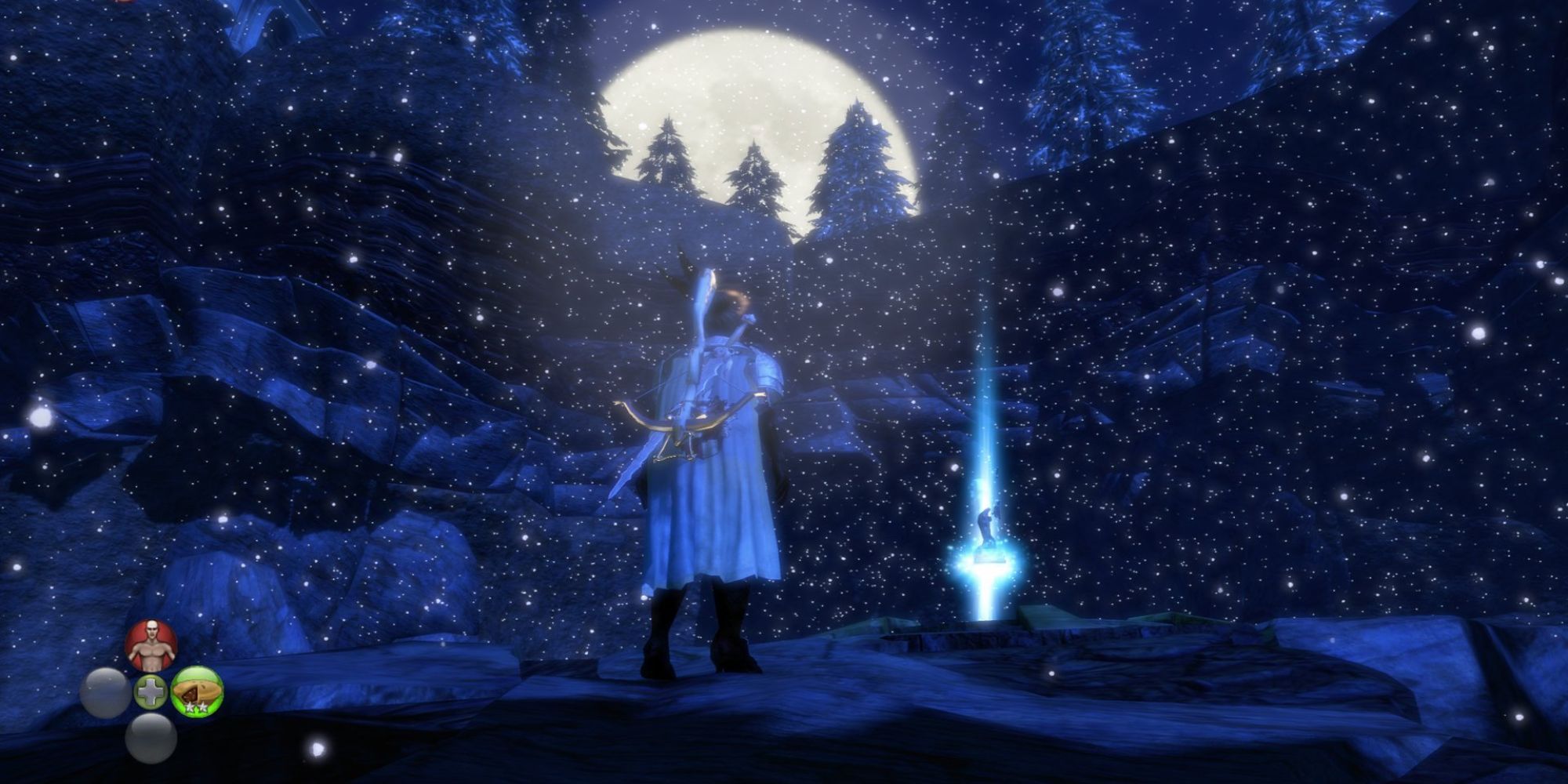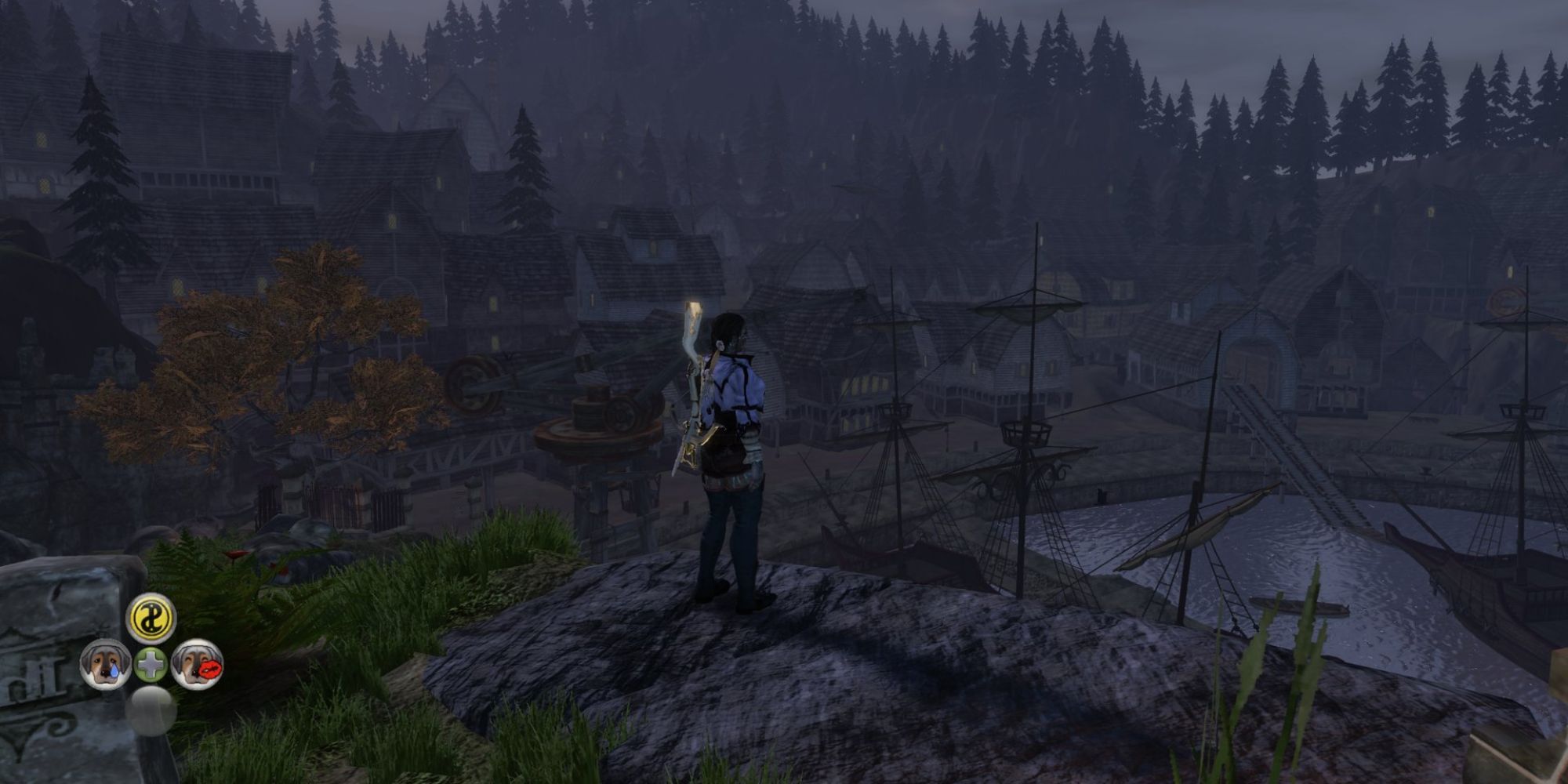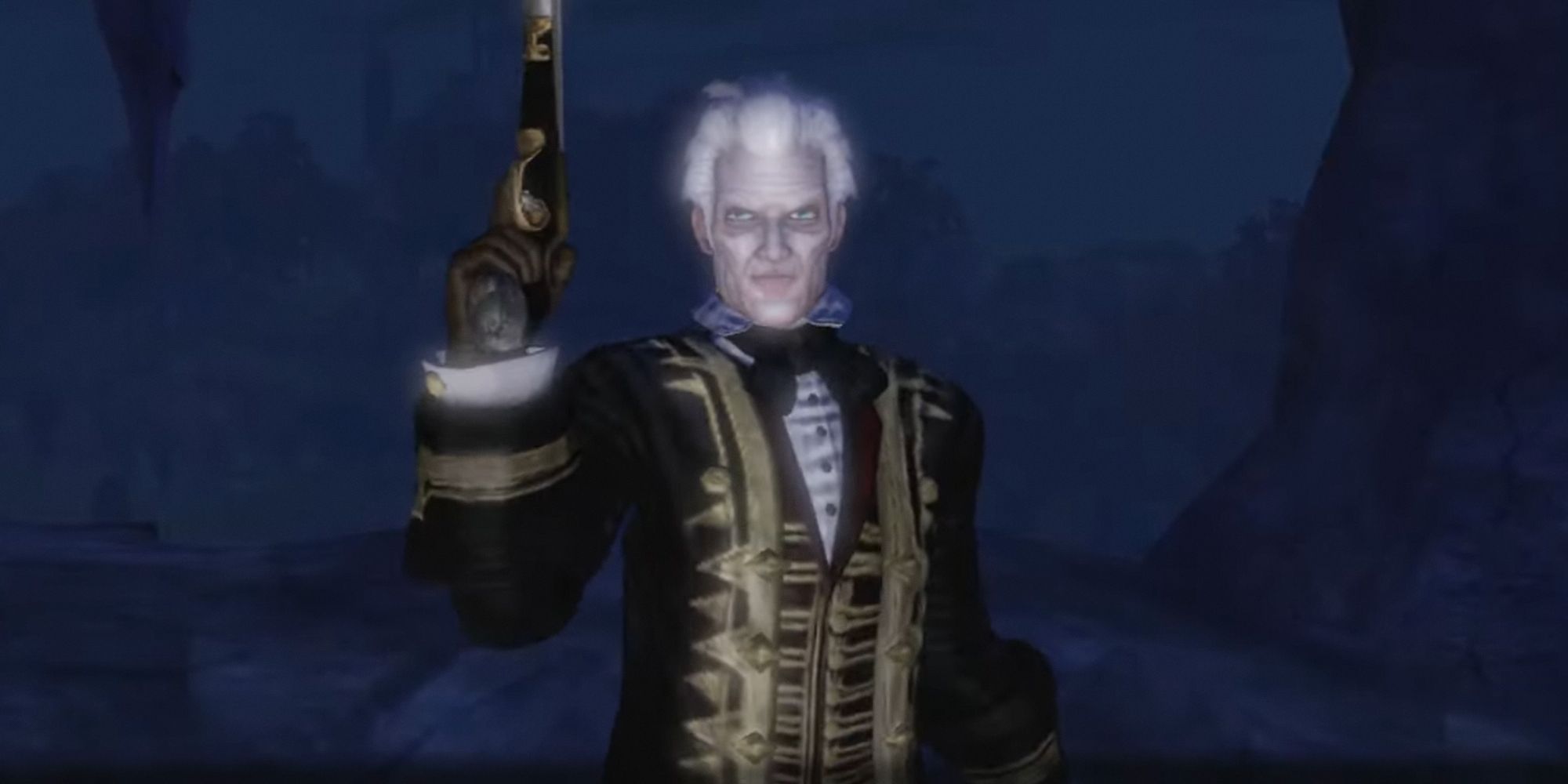Fable 2 may have been a hit in 2008, but something seems to have stopped it from earning its place in gaming history. It's not too surprising, I suppose. Fable games are always kind of odd. They’re more linear and simplistic than other RPGs of the time, yet also more awkward, a little unwieldy and all over the place. Playing through it in 2023, the second entry in the series has only gotten stranger. It feels like it was boldly predicting a future for the genre that just never came to be.
But while this may have hurt its longevity, that doesn’t mean we were right to deny its place in RPG history. 15 years on from its launch, Fable 2 is a beautifully heart-wrenching story of loss, innocence, and violence. It's also incredibly daft, painfully British, and endlessly endearing. Being a little rough around the edges doesn’t hold it back. It’s an acquired taste, but the world of Fable 2 only gets better with age.
Even after all this time, returning to the snowy streets of Bowerstone at the start of Fable 2 is nothing short of breathtaking. In a beautiful fusion of moody and fairytale aesthetics, the landscapes from beginning to end haven’t aged a day. From the way the cobbled streets look worn, to how the snow layers around the town, every inch of Albion looks unique. It feels lived-in.
Most importantly, it feels like home. From the get-go, it lulls you on with gorgeous fantasy visuals and jokes around every corner. After all this time, these first few quests feel like putting on a comfy pair of slippers.
But the sense of tragedy that permeates throughout the story is never far behind. You play as Sparrow, an orphan who witnesses their sister’s murder as a child. The last of the Hero bloodline, you belong to a lineage that the world has long forgotten, but it’s being part of this family that gets your sister killed by the villainous Lord Lucien, who fears the two of you will stop his plans to conquer Albion.
From this point on, Fable 2 is a balance of the magic Sparrow believed in as a child, and the violent path they walk to get their revenge. When you start this journey, you’re greeted with the music of Bower Lake, perhaps the most melancholic music in the game. It's beautiful and nostalgic, innocent yet heartbreaking. There’s no glory, but there is a sense of purpose.
This carries throughout your journey, with Albion a land of dichotomy. The old and the new. The rich and the poor. Innocence and violence. The Hero of Strength is a pacifist monk, and the Hero of Will is a man of science. Nothing is quite what you expect, and as inviting as Albion is on the surface, you never know when it will reveal its darker underbelly.
This only rings more true if you were a fan of the first game. Fable was a huge hit, full of whimsical charm that won over original Xbox players. In Fable 2, that’s all gone. You are the last of the Old Hero bloodline, and you’re a starving child.
At the end of the game, you don’t even get to win in some glorious battle. Lucien traps you in a dream of Sparrow's perfect life, living the childhood they never had. But instead, you leave it behind. Back for revenge. When you kill Lucien, he’s a stuttering mess of a man – there’s no cool boss battle here.
When your mission is complete, there are no crowds of adoring fans to greet you. You feel that you’ve accomplished the impossible and become the hero Albion sorely needs, but ultimately, you’re still that kid who lost their childhood in the pursuit of revenge.
Despite all of this, Fable 2 is remembered less for its brave take on the fantasy genre, and more for its humour – humour that may not have aged as well as the rest of the game. On the face of it, Fable 2 can feel like an overlong Monty Python sketch. But when you dig a little deeper, you find a gem of a game filled with love and tragedy. It rejects fantasy tropes, deconstructs what it means to be a hero, and even boldly turns its back on its own lore. It was a risk, and one that deserves our respect.
Its oddities may frustrate most fans of fantasy RPGs, but it's this willingness to go against the grain that makes Fable 2 even better with age. Lionhead struck gold with the first game, changed absolutely everything, and somehow struck gold again.
I can think of no other title that has been overlooked as much as Fable 2. It's awkward, it's silly, but it's perfect. I suppose it’s fitting that it has an odd, out-of-place legacy to match. It remains to be seen if the next Fable can be little more than a standard fantasy game with a British coat of paint, but whatever happens, we’ll always have Fable 2.
Source: Read Full Article


